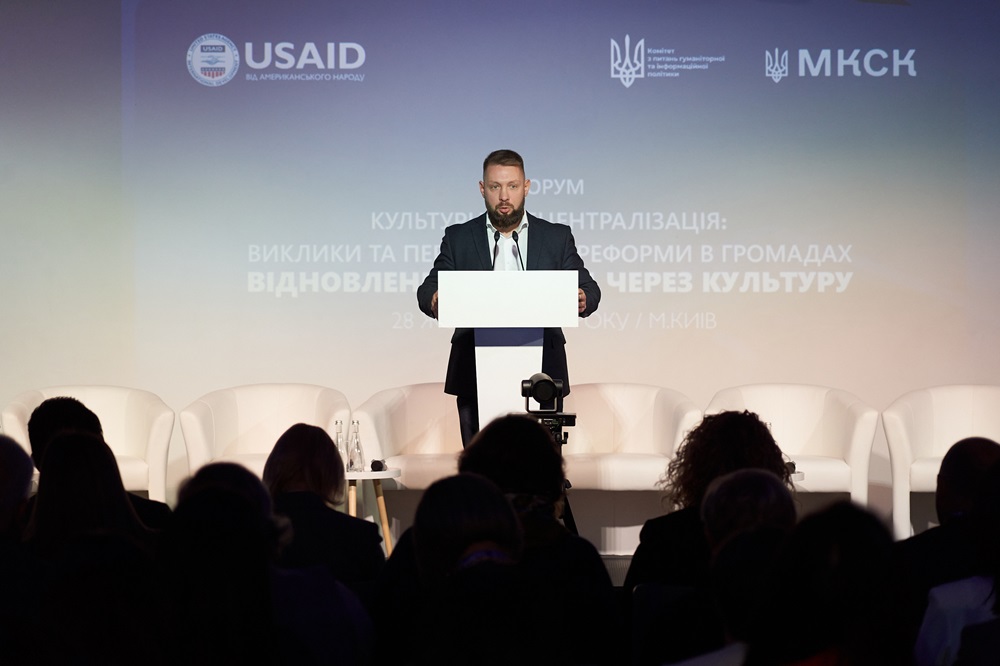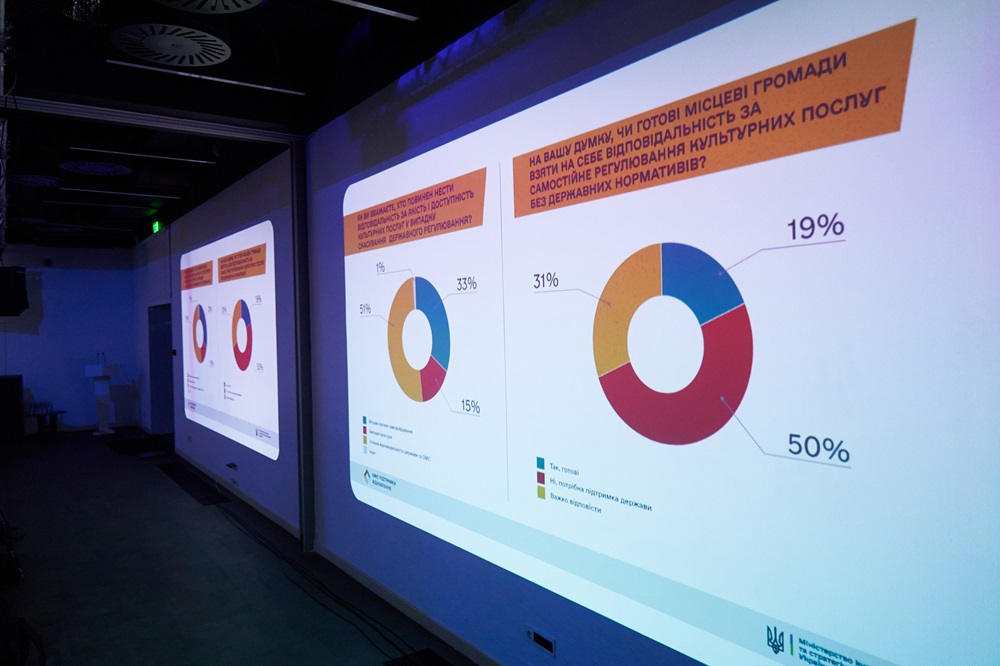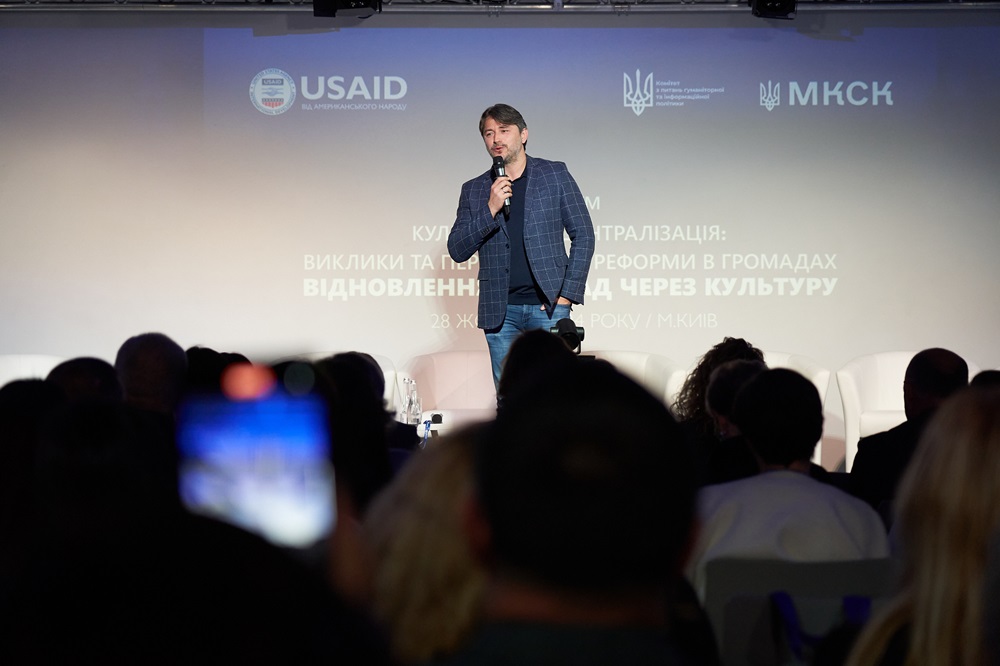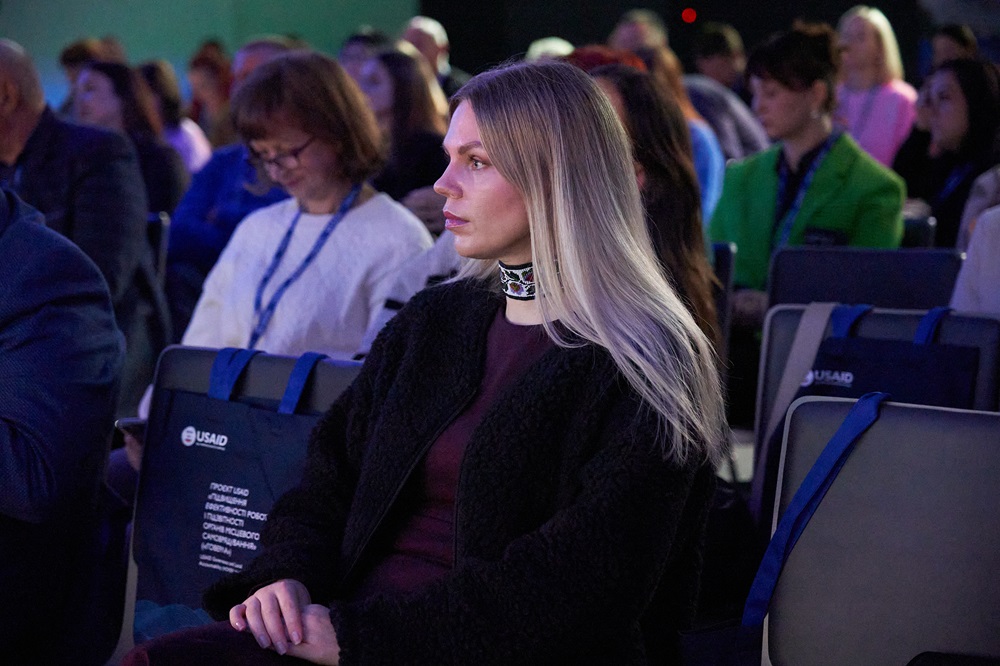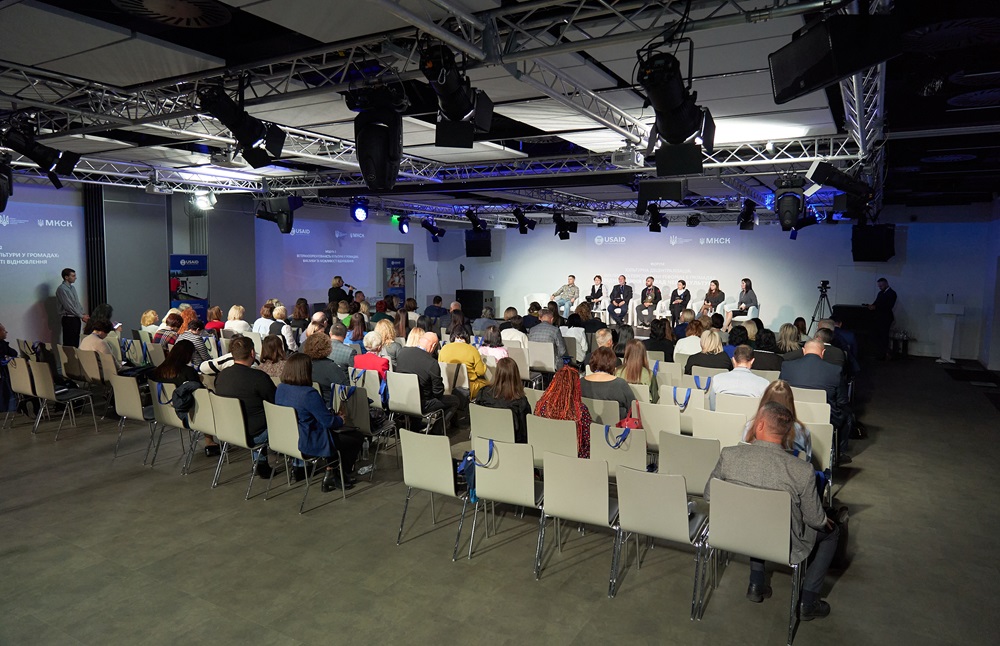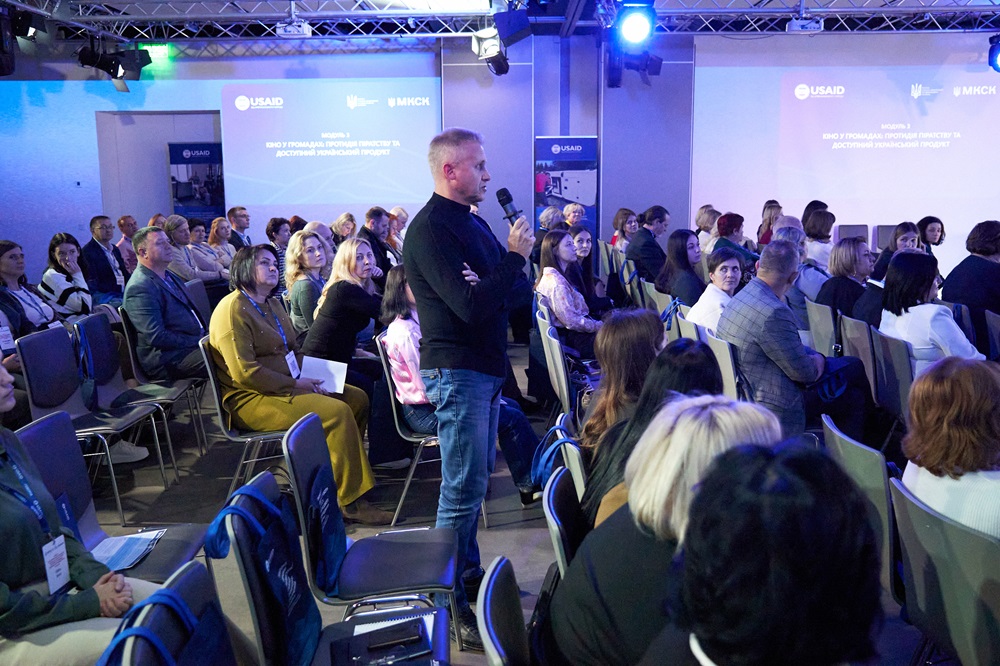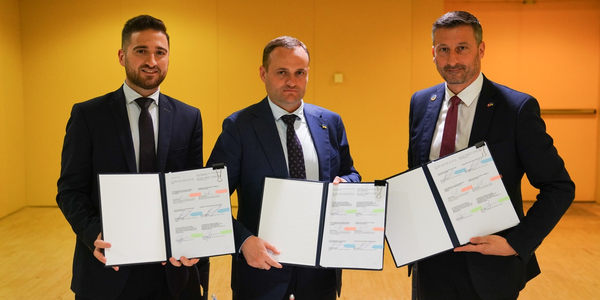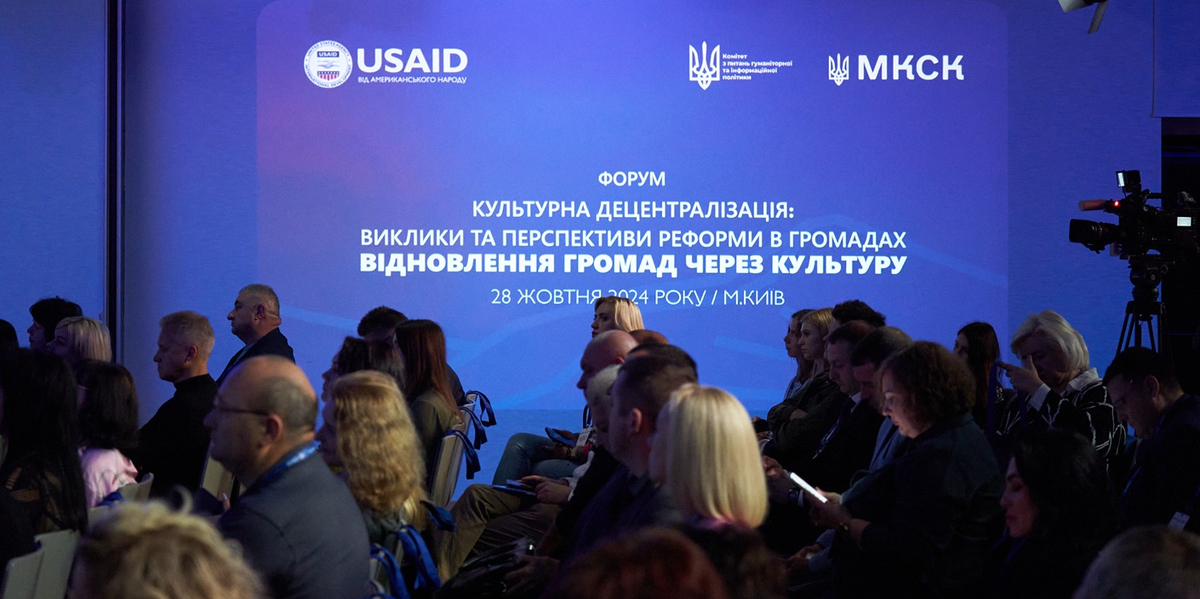
The Cultural Decentralization Forum gathered over 160 participants including representatives from the Ukrainian Parliament, relevant ministries, local governments, international technical assistance projects, and cultural institution experts, to explore how local cultural institutions can become impactful bodies offering competitive and quality services for residents. The USAID HOVERLA Activity organized the event alongside the Committee on Humanitarian and Information Policy of the Verkhovna Rada of Ukraine and the Ministry of Culture and Strategic Communications.
During the year USAID HOVERLA Activity experts conducted in-depth research on the status of cultural services in Volyn communities, revealing that this sector faces outdated infrastructure, dwindling budgets, and inefficient spending. Consequently, cultural competence and practices among Ukrainians are significantly lower than in European countries.
A new cultural policy could help address these challenges by fostering innovation, promoting creative industries, protecting intellectual property, and driving societal modernization to boost the economy and develop human capital. Decentralization, according to Mykola Tochytskyi, Minister of Culture and Strategic Communications of Ukraine, is an essential tool for transforming cultural services in communities.
“By rethinking how we provide cultural access—whether through libraries, museums, or creative spaces—we ensure that every Ukrainian can realize their creative potential. Culture is a key factor for resilience and community recovery. We often talk about rebuilding Ukraine post-war, but without cultural renewal, this process will be incomplete; culture is the nation’s soul,” said Minister Tochytskyi.
Mykyta Poturayev, Head of the VRU Committee on Humanitarian and Information Policy, emphasized the importance of building a strong national culture by developing it at the community level:
“This will form the true foundation of a robust Ukrainian culture. Geniuses aren’t born in capitals but in towns and villages. For them to find their way, there must be a beginning, and that always starts where a person is born.”
The USAID HOVERLA Activity supports this initiative, as competitive cultural services can economically strengthen communities, making them more capable and self-reliant, which is among the priorities of the Ministry of Community and Territorial Development.
“It’s essential to support the parliamentary committee in legislative changes in this area, granting local governments the tools to expand their capacities,” said Maia Gogoladze, head of the USAID HOVERLA Activity at the forum.
The forum also showcased successful local practices in modernizing museums, libraries, and clubs and digitizing cultural services through inter-municipal cooperation. With support from the USAID HOVERLA Activity, communities have already signed several inter-municipal cooperation agreements in culture and social services. As a result, Rozhyshche, Horokhiv (Volyn Oblast), and Rozhniativ (Ivano-Frankivsk Oblast) collaborated on a project to create a unique digital platform to digitize library collections. This initiative aims to establish quality book records, enhance residents’ access to literature, and foster partnerships with publishers and writers. To generate public interest in the digital library platform and make reading a trend, these communities recently aimed to set a national record in Ukraine as Reading Champions. The bid was highly successful, with over 3,000 residents joining in, collectively reading over 31,000 books from their libraries.
Demonstrating the economic impact of cultural initiatives, the Terebovlia community shared its success story during the forum. Since becoming a museum-workshop in 2021, the town’s local history museum has seen a surge in visitors, with groups of up to 50 people arriving from neighboring regions, shared Liliya Sokha, Deputy Director of the Terebovlia Museum-Workshop (Ternopil Obalst). In addition to permanent and temporary exhibits, the museum hosts a modeling school, private art lessons, book club meetings, a youth city council, movie nights, and volunteer workshops producing energy bars for the military. Workshops are held in the museum’s basement.
“Paid services are the best solution for municipal institutions, as they allow us to be self-sustaining,” said Liliya Sokha. “For example, a candle-making class costs 120 UAH, and soap-making is 100 UAH. We’ve expanded our selection from 10 scents to 56. All profits are reinvested into upgrading exhibitions, changing displays, and purchasing necessary equipment.”
Meanwhile, the Chortkiv community (Ternopil Oblast) transformed part of its public library into an art garage. At one point, the library, housed in an old building with architectural significance, became too small for all interested visitors, and the upper floors were inaccessible to people with reduced mobility, seniors, veterans, and mothers with young children.
The library courtyard was repurposed as a space for literary gatherings, aptly named Library Garage. According to Iryna Brunda, Director of the Chortkiv Public Library, their focus was to create a space for people rather than just books. “We gathered residents who care about what happens in the community, those who want change and dream with us, to a design session. We were designing not just a space, but values.”
“We then worked with professional architects to give these ideas physical form. We continued conversations about the future garage with the youth, allowing aspiring designers to create branding for the new space. With each event, we let people express their talents and dreams,” added Kateryna Yakovets, architect and co-creator of the Library Garage.
These and other stories about how different cultural spaces can look in small Ukrainian communities without huge funding inspire, show ways, and encourage others to follow the path of reformatting outdated institutions into modern and interesting ones and rebuilding communities through culture.
The USAID Governance and Local Accountability (HOVERLA) Activity assists the Government of Ukraine (GOU) to progress and strengthen decentralization reform by supporting local governance institutions to become more self-reliant, accountable to citizens, and able to provide services effectively. The USAID HOVERLA Activity’s support covers 11 oblasts and 103 municipalities.
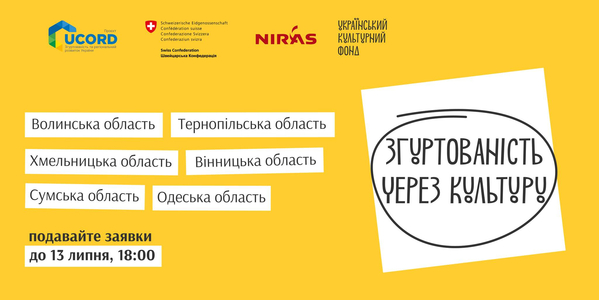
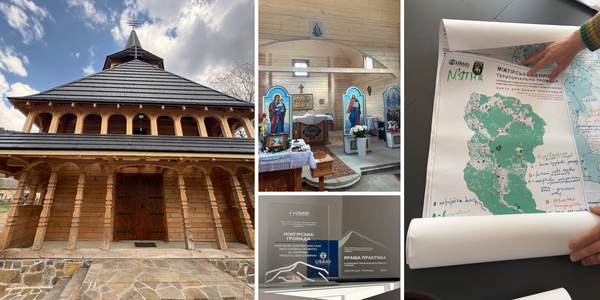
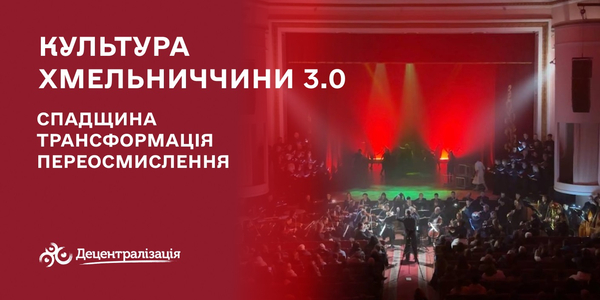

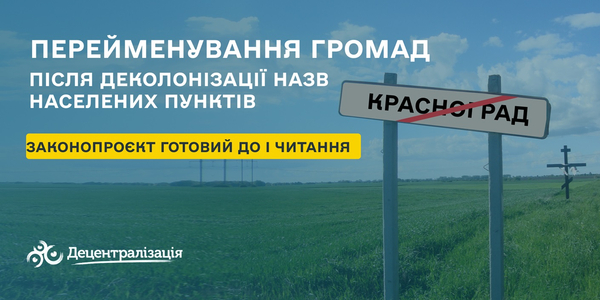 Законопроєкт, який надає можливість перейменовувати громади після деколонізації назв населених...
Законопроєкт, який надає можливість перейменовувати громади після деколонізації назв населених...
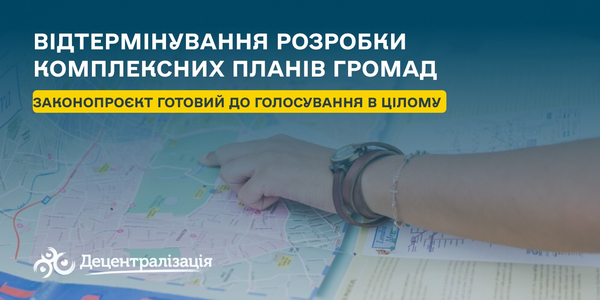 Відтермінування розробки комплексних планів громад: законопроєкт рекомендували ухвалити одразу в...
Відтермінування розробки комплексних планів громад: законопроєкт рекомендували ухвалити одразу в...

